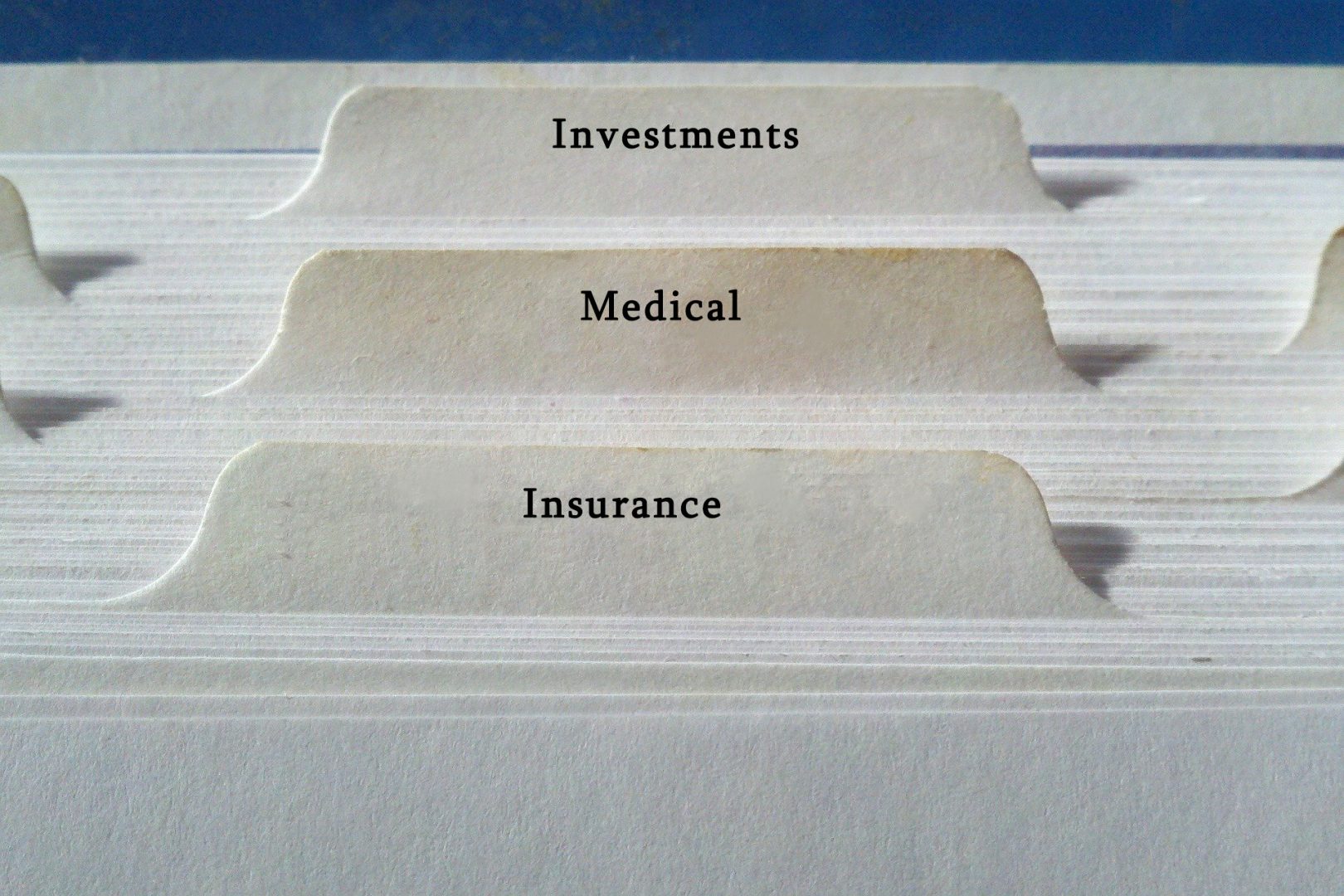Let’s start with a pop quiz. Where are your important papers? Your Will, Advanced Medical Directive or last year’s tax return? Did you answer “I don’t know.” For many that is exactly how you answered and if you didn’t, you get an A+. Oh, the rest of us could probably find these documents, if given enough time, but I’m sure you’re getting the point and maybe this is just the incentive needed to improve that paperwork overload.
This task may require some dedicated time and test your organizational skills. But, just imagine the relief the next time you go to look for these items! Below we have listed some categories to help you start your filing system.
- Personal – credit card statements, personal loan statements, mortgage information/statements or bank statements.
- Investment – Brokerage account statements, retirement account statements, stock certificates
- Estate Documents – Wills, trusts, powers of attorney, advance medical directives
- Legal Documents – Birth certificates, social security cards, passports, marriage/divorce certificates
- Home Documents – Appraisal documents, deeds, renovation receipts, lists/photos/video of home contents
- Income Tax Information – Tax returns, charitable gift documentation, property tax information
- Medical Information – Primary care physician contact information, medical specialist information, important medical documentation, insurance cards
- Insurance Documents – Original policies and recent statements for homeowner’s, auto, umbrella, life, disability, long-term care, etc.
You may want to categorize differently, with your own thoughts of what makes sense. You will likely be the one looking up information, so use categories that make sense to you so you can find everything.
There is also a second piece to organizing your documents and that is how long to keep them. A general guideline is to keep all important information (i.e., listed above) for seven years or until updated. It is important to regularly revisit and/or reorganize your files. Safely shred all the outdated information, because if you try to keep it all, you may have to add on a room to your home! A suggestion is to do it at tax time or at the start of a new year – that would organize you for tax season.
Last, we suggest that you inform the appropriate person(s), family members or Executor, about the location of your files. This is important in case of an emergency. If important information is needed and cannot be found, it could present a problem. If you need further direction, don’t forget we are here to help!
Have a great weekend!
Source:
https://yebu.com/financial-planning/avoid-surprise-get-organized


